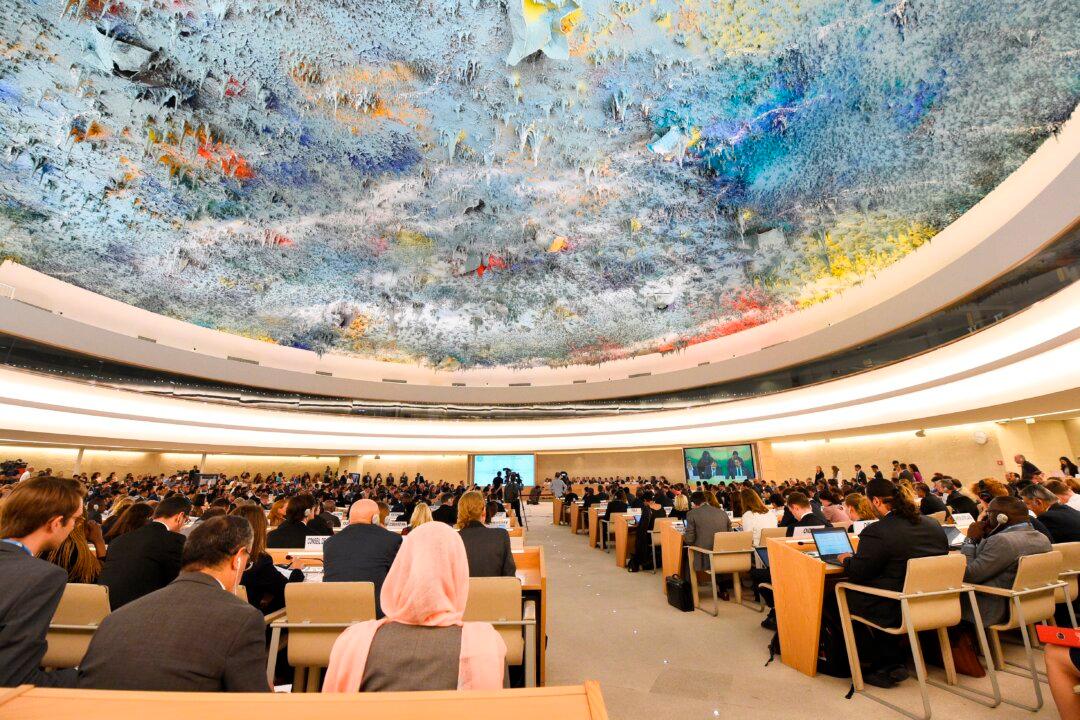China’s human-rights record will be scrutinized on Nov. 6, during a review by the United Nations Human Rights Council (UNHRC) that is expected to address alarming reports of the mass internment of “upwards of one million” Uyghurs for political re-education in China’s northwestern Xinjiang region.
Facing its third universal periodic review (UPR) in Geneva, the Chinese government is also likely to be criticized for its ongoing suppression of the civil and religious freedoms of the Chinese people. Concerns about the ruling Chinese Communist Party’s (CCP’s) treatment and detention of activists, journalists, and human-rights defenders across the country are also expected to be raised. All 193 U.N. member states go through the UPR process every four and a half years.
As many as one million predominantly Uyghurs are believed to be detained in the internment facilities, according to figures quoted by the U.S. Congressional-Executive Commission on China and the U.N.
Patrick Poon, China researcher at Amnesty International, said, “The Human Rights Council must send an unequivocal message to the Chinese government that their campaign of systematic repression in the XUAR (Xinjiang Uyghur autonomous region), including the arbitrary detention of up to one million people, must end.”
The United States, which announced on July 13 that it would withdraw as a member of the UNHRC, called on China, in its advance questions, to provide the “duration and location” of those detained, along with “the grounds for detention.”
Washington also demands that the CCP describe the “humanitarian condition” in the facilities and “the content of any training or political curriculum and activities.”
“Can China provide … the rights detainees have to challenge the illegality of their detention or appeal the detention; and any measures taken to ensure that their families are promptly notified of their detention?” it added.
Last month, then-U.S. Ambassador to the U.N. Nikki Haley described the crisis in Xinjiang as “the largest internment of civilians in the world today” that is “straight out of George Orwell.”
And the UK also pressed the CCP, asking the regime if it will “halt the practice of detaining individuals who have not been lawfully charged, tried, and convicted for a criminal offense in any extra-legal detention facilities; immediately release individuals detained under these circumstances; eliminate travel restrictions that disproportionately affect members of ethnic minorities.”
“The Chinese authorities’ recent propaganda should fool no one. The internment camps are places where torture and other forms of ill-treatment are rife. States need to demand the truth from China in the U.N. Human Rights Council review on Tuesday,” Poon remarked.
But U.S.-based Uyghur scholar Tahir Imin, 38, believes little progress will be made at the event.
“The Chinese government has a very sophisticated manner when it comes to international pressure. If the Chinese government is honest, they should let the international bodies in to inspect the area.
“Maybe they’ll allow some media or international organizations to go and investigate the situation but they’ll arrange everything very well beforehand,” he said.





